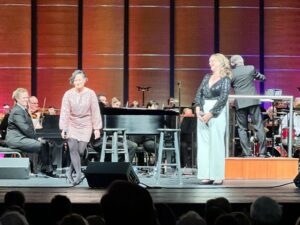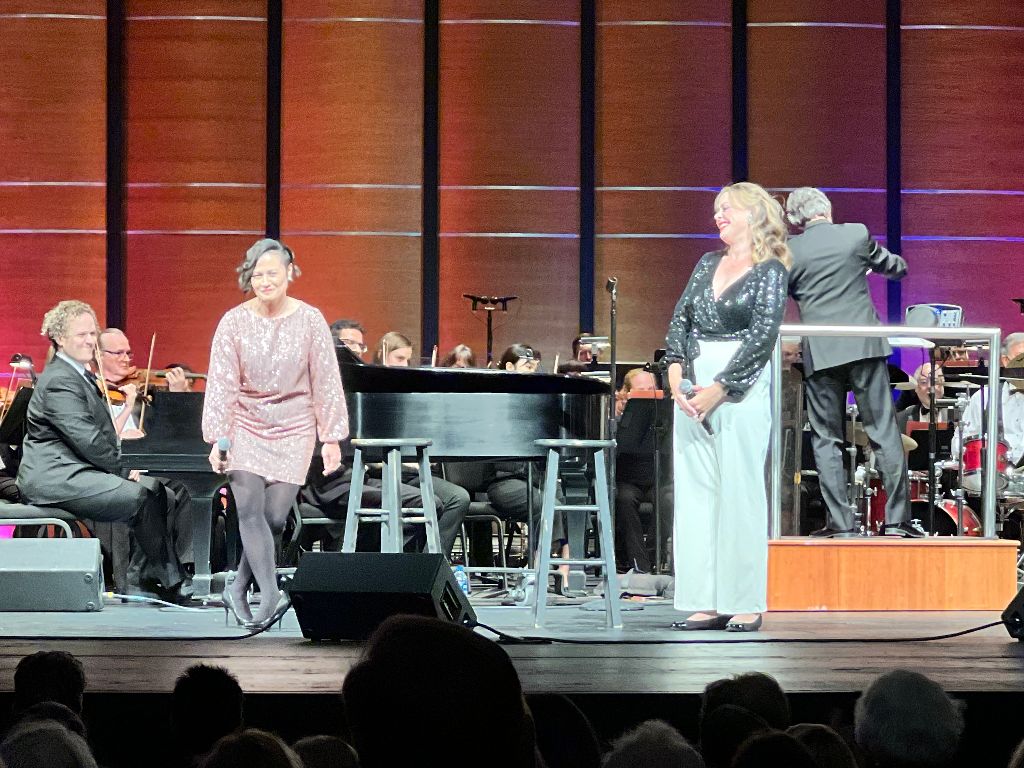June 10 this year marked the 100th birthday of Judy Garland, who died in 1969. The singer attained iconic status with the 1939 film The Wizard of Oz, and for the remaining 30 years of her life Garland was arguably the most famous female singer in the world.
The Austin Symphony Orchestra hosted a 100th birthday celebration of her music this month, with guest singer Natasha Drena.
It was Austin Symphony CEO and Executive Director David Pratt who suggested to Drena that she turn her cabaret act as Judy Garland into a popular show. “David has been pushing me to write this,” she told the audience. “These are the Carnegie Hall arrangements,” many of them by the incomparable Nelson Riddle.
Drena was referring to the April 13, 1961 Garland concert at Carnegie Hall. A recording of it stayed at no. 1 on the music charts for 13 weeks, and it was one of 50 albums chosen by the Library of Congress for its esteemed list of landmark recordings. While there is no video recording of the concert, the soundtrack was synched to a 1962 TV show she did, and it can be seen on YouTube: https://www.youtube.com/watch?v=Nk2Fw0YlX2Q
It was truly an amazing night in 1961: in the audience were Lauren Bacall and Debbie Reynolds, Spencer Tracy and Henry Fonda, Carol Channing and Ethel Merman, Benny Goodman and Harold Arlen, Tony Perkins and Roddy McDowell, Mike Nichols and Elaine May, Betty Comden and Adolph Green, Gwen Verdon and Bob Fosse, Rock Hudson and Richard Burton. The audience at the Long Centre lacked the star power, but more importantly for the performance, it was a chill audience. Despite an adherence to the arrangements, there was no electricity in the air.
More to the point, people did not know what to expect. Was this a tribute, or an imitation? It was basically half and half, which satisfied few. Certainly, having a drag queen up there would have made it campier, as some gay members of the audience told me, but then we would not have had live vocals. On the other hand, we would have heard the real Garland. “But it’s better than if Liza tried to do this!” They wanted the vocals from Drena to be louder and rowdier, but they gave her credit for the concert. “It takes a certain degree of courage to bring Judy Garland into the 21st century!”
Alas, there was only one Judy; even her daughter Liza Minnelli could not duplicate it. While her hand and arm gestures can be imitated (Drena did some of that) her voice was utterly unique. There was no throatiness to Drena’s voice; it lacks the timbre and resonance Garland had. The song After You’ve Gone is Drena’s favourite, and in that rendition she moved nicely and got into it. There was also a lovely duo, with Drena singing Get Happy while Leslie Walden Bellair sang Happy Days at the same time. Arrangement and orchestration by Garland’s music director Mort Lindsey. It was great to hear these songs and all the others, now so rarely performed in person, especially with a full symphony orchestra.
The concert in Austin was held October 1. Drena reminded the audience it was the exact date Garland went onto the MGM lot for the first time. Little did the studio know it was about to launch a mega-superstar into the world. Dorothy and her dog Toto captured the hearts of the world; the love affair everyone had for Judy Garland has never ended.
This concert was part of the Pops series of the Austin Symphony Orchestra.

